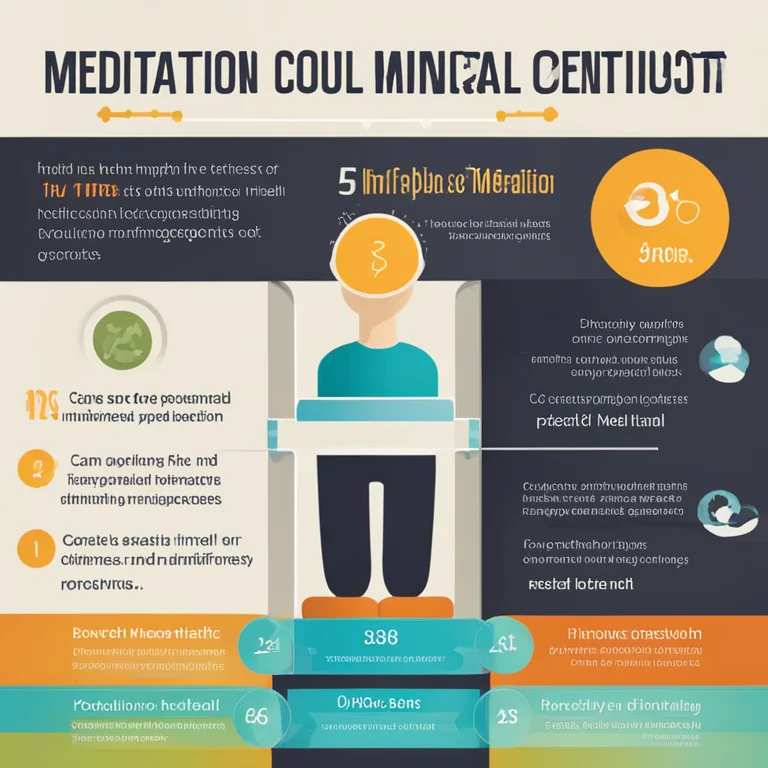
Meditation in Psychological Practice
Delve into the psychological significance of meditation and its impact on mental health and cognitive function.
article by Hina Kurosawa
Meditation in Modern Psychology
Meditation, often associated with religious and spiritual practice, has found a substantial place in contemporary psychology. As a therapeutic tool, it is recognized for its potency in reducing stress, enhancing emotional well-being, and improving cognitive processes. Modern psychology examines meditation not as a mystical experience, but as a structured technique that involves attention regulation, awareness of the present moment, and acceptance of cognitive and emotional states. These elements are crucial for fostering a healthier mindset and stimulating psychological resilience in our fast-paced world.

Cognitive Benefits of Meditation
Cognitive science has revealed that regular meditation can lead to significant changes in brain structure and function. Research points to increased thickness in areas related to attention, sensory processing, and interoception. Importantly, meditative practices have been linked to improved memory, attention span, and executive function—skills that are more pertinent than ever in the information-saturated era of 2024 and beyond. By regularly engaging in meditation, individuals can nurture a sharper and more focused mind.

Emotional Regulation Through Meditation
Meditation is key to unlocking enhanced emotional self-regulation. In contrast to immediate, often unconscious, emotional responses, meditative techniques encourage a more observant and less reactive stance toward emotional stimuli. Studies highlight that regular practitioners exhibit reduced stress levels and a more balanced emotional state, contributing to overall well-being. This heightened control is integral in a society that continually grapples with complex emotional challenges.

Meditation and Mental Health
The relevance of meditation to mental health is increasingly recognized in clinical settings. Therapeutic approaches like Mindfulness-Based Stress Reduction (MBSR) and Mindfulness-Based Cognitive Therapy (MBCT) have been effective for a range of conditions, including anxiety, depression, and chronic pain. In the current healthcare landscape, an emphasis on preventive mental health care highlights meditation as a crucial element for maintaining psychological equilibrium.

Integrating Meditation into Daily Life
As the understanding of meditation evolves, so does the application in daily routines. Individuals are now encouraged to incorporate brief, flexible meditation practices tailored to individual lifestyles. With the rise of digital wellness tools such as apps and virtual reality experiences, access to meditation has never been so convenient, catering to the busy lives of people in 2024 who seek to find a harmonious balance between their digital and personal worlds.
Meditation and Future Psychological Research
Looking forward, meditation remains a fertile ground for psychological research with potential applications across various domains. Future studies are expected to unravel deeper insights into how long-term meditative practices may contribute to neuroplasticity, the brain's remarkable ability to reorganize itself, offering promising avenues for rehabilitation and cognitive enhancement. As such, meditation is not just a passing trend but an integral part of the future of psychological well-being.
Published: 1/9/2024
Modified: 1/9/2024
More predictions
Come back here soon to learn more about yourself and your future


Serenity Through Meditation Retreats
Embark on a transformative journey at a meditation retreat to recharge, refocus, and reconnect with your inner self.


The Serenity Sojourn: Embrace a Meditation Retreat
Delve into the tranquility of a meditation retreat and rejuvenate your mind, body, and soul with practices that transcend time.


Retreat into Serenity: A Meditation Haven
Discover the transformative power of a meditation retreat and find tranquility for mind, body, and spirit in our comprehensive guide.